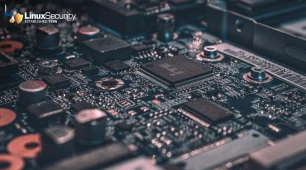
QEMU plays a significant role in Linux system emulation by providing users with features like isolation of guest and host systems, device emulation security, memory management, and sandboxing. The article emphasizes QEMU's ability to "prevent potential security flaws or exploits in the guest system from affecting the host system" through its isolation feature, a crucial aspect for information security pros.
QEMU's integration with security technologies like SELinux and AppArmor adds an extra layer of protection, but is it enough? Should security practitioners explore other ways to strengthen QEMU's defenses?
Should we consider the trade-offs between the portability of containers and the isolation of QEMU-created virtual machines, especially as the landscape of system virtualization continuously evolves?
In conclusion, QEMU has made important contributions to Linux system emulation security. Still, it's crucial to reflect on the emulator's long-term implications and potential improvements to protect virtual environments.
Stay informed to stay secure, friends!

















